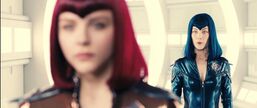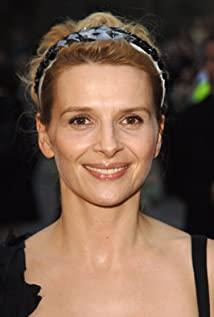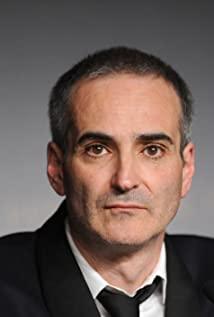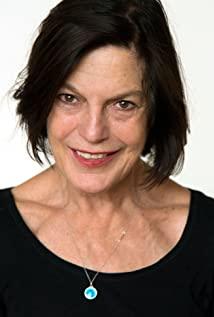I watched the entire movie on and off for four days, including the fact that I kept my computer in the download state for a whole day because of resource interruption, and finally finished the movie. To be honest, I watched this movie at the beginning mainly because of the French goddess Juliette Binoche. Another thought, with such a very literary title, the film is usually either unique or uninteresting. Facts have proved that this is a slow-paced, rather heart-wrenching film.
Three women in one play. Although there is a gap between these three people, there is not much actual communication between the assistant and the young actress, but because this is a story about an actor, a lot of reality and stage interchange and penetration are interspersed in it. Therefore, although the young actress did not appear in the first two-thirds of the film, through the script training between the heroine and the assistant, the young actress actually had a place from beginning to end. This is a very unique part of video processing.
Therefore, these three characters, false and real, true and false, through the collision between the self in reality and the self in the drama performance, as well as the collision between themselves and her in reality and herself and her in the drama performance, have distinct and unique personalities. and influence each other.
At the same time, Maria, the heroine played by the aging goddess Binoche, is also a drama celebrity who has lost her youth, and was invited to play the role of Sigrid's opponent in a play in the movie when she was young - --An "old woman" Helena who is attracted to her younger self and leads to suicide. After this tongue twister introduction, I hope you can understand that this is a four-layer time penetration story similar to Inception.
Therefore, as a female star who is no longer in her youth, Maria showed panic, despair, resentment and unwillingness to the passage of time. Therefore, although she accepted the performance assignment, she found various reasons to prove that she was not suitable; although she always said that she was not suitable, she repeated the lines with the assistant again and again. Therefore, the entire film is almost spent in her almost morbid self-entanglement and frustration, and her young assistant Valentine is also frustrated at the same time. This role is also very interesting. Although she is set as an assistant, she takes on a large part of the tasks of Jo-Ann, the third character in the play, and takes on Maria's jealousy for her youth.
Age is indeed a female killer. Just like the role change in a drama story, when Maria was young, she played the ambitious and youthful Sigrid, and when she was old, she could only play Helena, who was envious of the young, desperate and powerless. This role committed suicide because Sigrid left her. .
Everything is the fault of the years. It took away the smooth skin, slender figure, irresponsible energy, and fearless spirit, leaving behind a pile of powerless residues, and a seriously out of shape body, which makes people develop into fear and anxiety but innocence. "Old kids" era.
Because of fear, Maria needs to be constantly fed, and she needs to get affirmation from the young assistant over and over again, and this affirmation also stimulates her to escalate the provocation again and again, and this provocation is actually accompanied by a deeper understanding layers of self-doubt and abandonment.
This is a very intriguing part of human nature. The so-called "pulling and not going, going backwards" is a relationship model with a relatively serious dependence, which widely exists in parent-child relationships, pension relationships, and love relationships, because these The relationship is basically a situation where the boundaries are easily blurred and the degree of adhesion is high.
So sometimes, the key to solving this problem is also the interruption of the relationship, that is, the dependency. As in the film, with Valentine's departure, Saria's condition improved by more than half. Of course, this is only an analysis of the play, without expressing my absolute views, because psychological problems still need to be analyzed in detail.
The Serpent of Maloya has always been the soul of the film. Saria saw the beginning of the real "Snake" while losing Valentine, and met the "Snake Tail" after being frustrated by Jo-Ann's performance. At this point, the Serpent of Maloya is fully presented, and Saria has a deep understanding of life.
What time has brought her is actually not one or the other, the gain and loss are absolute. That kind of thing that settles or brews with the passage of time is called years.
Just like the confused Saria saw the clouds in the valley for the first time, she was disappointed to say that it was not a cloud, but a fog. At the end of the film, when her eyes were raised, Saria must, like me, remembered the Serpent of Maloya described at the beginning of the film:
"The clouds came from far away, pushed by the wind across the Maloya Pass, Show all the beauty."
"Very rare, no explanation."
View more about Clouds of Sils Maria reviews











